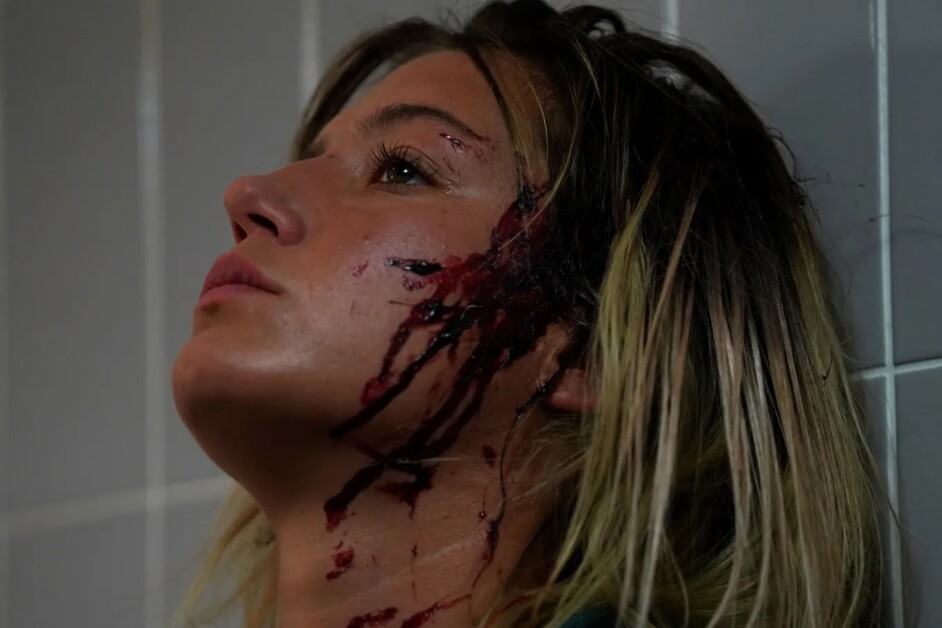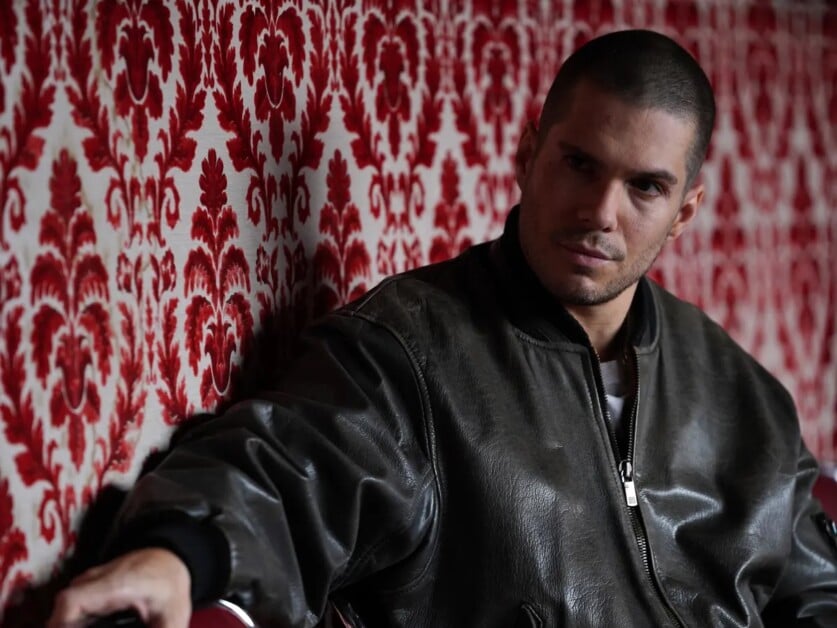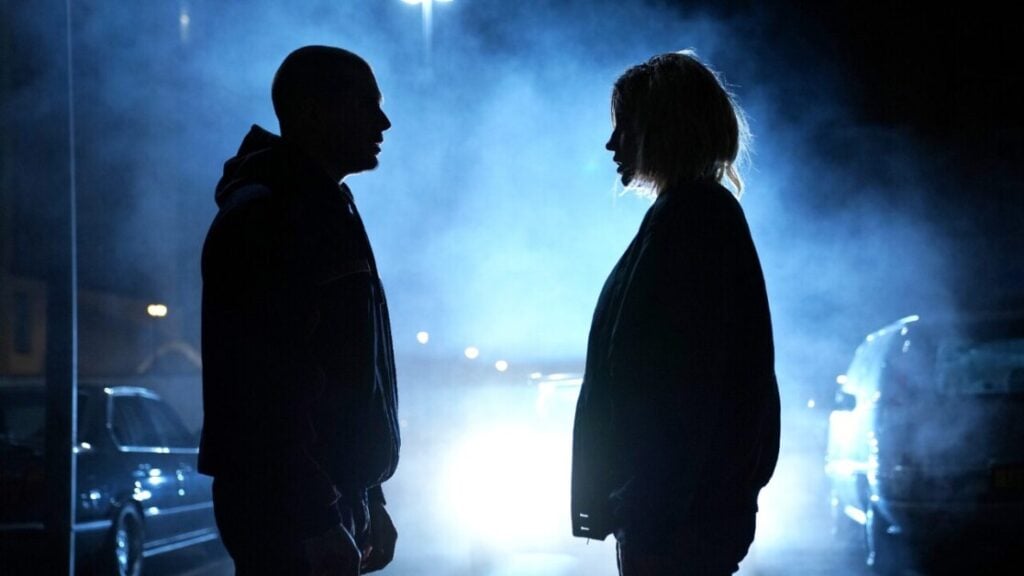After taking his directional debut, Sink or Swim, to the Cannes Film Festival in 2018, writer/director Gilles Lellouche has returned to La Croisette with his latest feature, Beating Hearts. The movie is loud, dynamic, and turned up to eleven, but ultimately, it descends into predictability.
While Adèle Exarchopoulos (Passages) and François Civil (Love at Second Sight) might be the biggest names on the bill as Jackie and Clotaire, it’s Mallory Wanecque and Malik Frikah who take centre stage as their adolescent counterparts. They portray the sweet but conventional central couple with determination and excitement. Wanecque (The Worst Ones) brings out the stubbornness and independence but also the fragility and edginess of Jackie perfectly for this movie. Her character is a teenager who’s not afraid to say what she’s thinking and to be her authentic self (even if she’s not the ‘conventional’ girl). She doesn’t mince her words, and while that cockiness clashes with Clotaire’s personality – as he’s full of himself as well – she soon falls for the dangerous guy.
Their relationship is fiery and turbulent right from the start. Not only because it’s their first relationship and the sparks are flying but also because Clotaire is a troubled young man attracted by violent practices. He might have a soft side and a good heart – as these are the elements Jackie draws out of him – but trouble always finds him. This results in him taking on severe crimes and Frikah (Apaches) showing the audience what a revelation he’s acting wise. He delivers a lived-in performance and ensures that Clotaire’s criminal charm and vulnerability are present in his acting.

The flammability and fragility of Jackie and Clotaire and their relationship don’t only come through via the complex performances but also via the appropriately dramatic score and cinematography. Lellouche’s camera is always on the move, suggesting the wild and intense emotions the couple is going through, and together with his Sink Or Swim cinematographer Laurent Tangy, he adds a lot of drama in the form of beautiful sunsets, remarkable compositions, and bright lights.
For both Jackie and Clotaire, the relationship is a vessel for escapism. Jackie can leave her mundane life behind while Clotaire finds love and affection in his otherwise dark world. That romantic escapism is conjured up by both the original score by Jon Brion (Eternal Sunshine of the Spotless Mind), which mainly consists of piano and strings, and existing songs from your typical 80’s bands such as The Cure and Prince. Lellouche also created some beautifully crafted dance sequences that will remind you of that era’s features and music videos.

That terrific use of the score and cinematography is still present during the second part of this feature when we meet Jackie (Exarchopoulos) and Clotaire (Civil) in their twenties. Hip-hop numbers have replaced the romantic, dramatic songs while the camera work is much more steady. That latter aspect reflects the more steady lives Jackie and Clotaire have…without each other. Clotaire has been serving twelve years in jail for an alleged murder, while Jackie has started a new relationship with white collar businessman Jeffrey (Vincent Lacoste). After being released from prison, Clotaire is ready to rekindle his relationship with Jackie, but that’s where the problems for both him and this feature start.
Because Jackie’s dad and her current partner don’t want him in her life, Clotaire has to overcome many barriers to finally reach her. You know that the former star-crossed lovers will eventually meet, but because of all those obstacles, it takes ages for Clotaire to get to her. Lellouche and writers Audrey Diwan (Happening), Julien Lambroschini (La Source), and Ahmed Hamidi (Les Guignols de l’info) want to keep the tension of the ‘Will they, won’t they?’ question alive, but that doesn’t work because you know what will happen. Therefore, it feels like the writers want to kill as much time as possible until that inevitable moment. A faster reunion certainly wouldn’t have impacted the intensity of it, and it would also have ensured that the movie doesn’t feel as slow-going as it does now.
Beating Hearts isn’t 100% correctly structured—the climax comes too late—and loses much of its intrigue towards the end. Nevertheless, this unbalanced and prolonged feature has enough cinematic flair, vibrant colours, and upbeat energy to become an enjoyable, immersive exploration of the same relationship over multiple years.
Beating Hearts held its World Premiere as a part of the In Competition section of the 2024 Cannes Film Festival.
Director: Gilles Lellouche
Screenwriters: Gilles Lellouche, Audrey Diwan, Ahmed Hamidi, Julien Lambroschini
Rated: NR
Runtime: 166m

While Beating Hearts is a loud and dynamic exploration of love and a dangerous relationship, it descends into predictability.
-
GVN Rating 6.5
-
User Ratings (0 Votes)
0







